At the moment when the dividend of domestic Internet has peaked, more and more Chinese entrepreneurs and investors have begun to pay attention to "globalization". In 2021, 36 krypton will go to seaContinue to launch globalization manual, read one by one for readersGermany, France, the United Kingdom and other European countries. France in Western Europe has become our second stop into Europe.In the first part, we take the reader "into" France by reviewing the history and telling the humanities; In this chapter, we will focus on the economy and venture capital environment of France, and take a look at the Makron version of "mass entrepreneurship and innovation".
Economic and entrepreneurial ecology
France is the seventh largest economy in the world and the third largest economy in Europe (after Germany and the United Kingdom). As a world industrial power, France's steel, automobile and construction industries are very developed. At the same time, service industry and agriculture are its pillar industries. From the perspective of venture capital environment, from "non pro business" to "free entrepreneurial country", France's venture capital environment is undergoing "earth shaking" changes.
According to the introduction of Business France, France now has the world's largest incubator, tens of thousands of start-ups, and one of the countries with the lowest failure rate of entrepreneurship in Europe. In addition, e-commerce, cloud services, financial technology, artificial intelligence, and renewable energy have all become popular tracks. At the same time, the amount of financing and the number of transactions of French start-ups have also been on the rise from 2017 to 2020. According to CB Insights, as of November 2021, there are 19 Unicorn enterprises in France.
Economic overview
To sum up, France is a highly developed capitalist country. According to the data released by the World Bank, in 2020, France's GDP will rank seventh in the world and third in Europe with 2.6 trillion US dollars. At the same time, the overall living standard of French people is high, and the difference between rich and poor is small. About 50% of the people belong to the middle class. According to IMF data in 2021, France's per capita GDP is US $45000, belonging to a high-income country.
However, the COVID-19 epidemic, which has swept the world, has also brought a huge impact on the French economy. According to the data released by the French National Institute of Statistics and Economics, France's GDP fell 1.3% month on month and 5% year on year in the fourth quarter of last year, and the annual GDP shrank 8.3%. However, with the easing of the epidemic, the economy of the country will grow 0.9% month on month in the second quarter of 2021, higher than the 0.8% growth expected by the market.
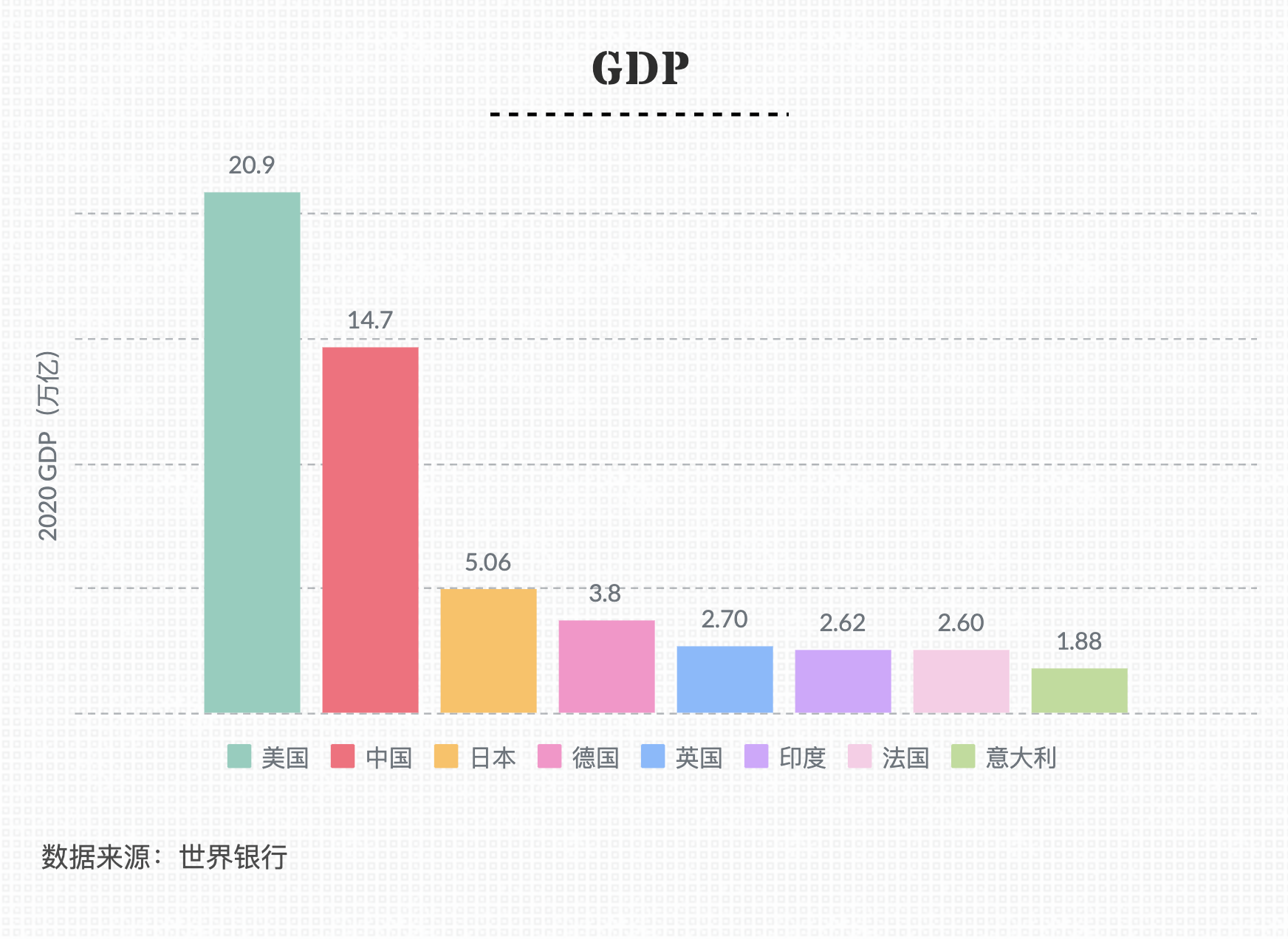
From the perspective of industrial structure, agriculture has always been one of the pillar industries in France. It is understood that France is the world's second largest exporter of agricultural products, second only to the United States. In addition, as an industrial power, France's domestic industrial output value accounts for about 11.2% of GDP, and the steel, automobile and construction industries are the three pillar industries. In addition, nuclear energy, petrochemical industry, marine development, aviation and aerospace industries have also accelerated their pace of development in recent years. Moreover, France's tourism and service industries are also world-famous. It is understood that France is the world's largest tourist country. In 2019, it received nearly 90 million tourists, but the epidemic has reduced the income of France's tourism industry by nearly 50% in 2020.
In fact, when reviewing France's modern development, it is not difficult to find that the country has also experienced many economic challenges. Among them, the World War II had the greatest impact on France. It is understood that after the devastation of the war, France lost nearly 2 trillion francs, and its industrial production capacity declined significantly, with the production index only 40% of that before the war. However, it was good that France had a rich family at that time. It took only four years to recover, and its industrial production index and gross national product were also rising year by year.
But what really made France enter the fast lane of development was the arrival of the third scientific and technological revolution - a technological revolution involving information technology, new energy technology, biotechnology, marine technology and many other fields. It is understood that the third scientific and technological revolution has promoted the improvement of productivity and the rapid development of production socialization, and objectively "requires" countries to break national boundaries and regional restrictions at the economic level, so as to realize the free circulation of goods, capital and labor in a wider range.
From the late 1950s to the early 1970s, France focused on the development of "emerging" industries such as chemical industry, electronics and electromechanical, automobile and communication equipment, and increased investment. At the same time, as a major agricultural country in Europe, France has always attached great importance to the development of agriculture, which made the average annual growth rate of French GDP from 1959 to 1974 as high as 5.7%, much higher than that of the United States, Britain and Germany at that time. However, due to the oil crisis, the European debt crisis, the decline of the local manufacturing industry, and the impact of the epidemic, France has repeatedly faced the dilemma of slow economic development.
Now, France, which is recovering from the epidemic, is making great efforts to develop industrial innovation. President Makron has set the goal of "building France into a free country of entrepreneurship".

Venture Capital Ecology
Today, France is gradually becoming a "free country of entrepreneurship". Paris, in particular, has surpassed Berlin and become the second largest "city of science and innovation" in Europe after London. according to2020 French Technology Venture Capital ReportAccording to statistics, in 2020, the financing amount of start-ups in Paris increased by 12% year on year, compared with that in London (- 1%), Berlin (- 32%), Stockholm (- 6%) and Munich (- 50%) in 2020.
In addition, Paris also has the world's largest incubator, Station F, which was officially launched in June 2017 and has now settled in more than 1000 start-ups. In addition, there are also high-quality entrepreneurship centers such as Anticafe (the largest joint office coffee shop in Europe), Kwerk, Deskopolitan and NUMA.
From the perspective of investment, the 2020 French Science and Technology Venture Capital Report shows that from 2017 to 2020, the number and amount of financing for French start-ups has been on the rise. In addition to local and overseas investment institutions, the French government also provides support for venture capital through the French National Investment Bank BPI. According to CB Insights, as of November 2021, there are 19 Unicorn enterprises in France, 10 of which will be newly promoted in 2021.
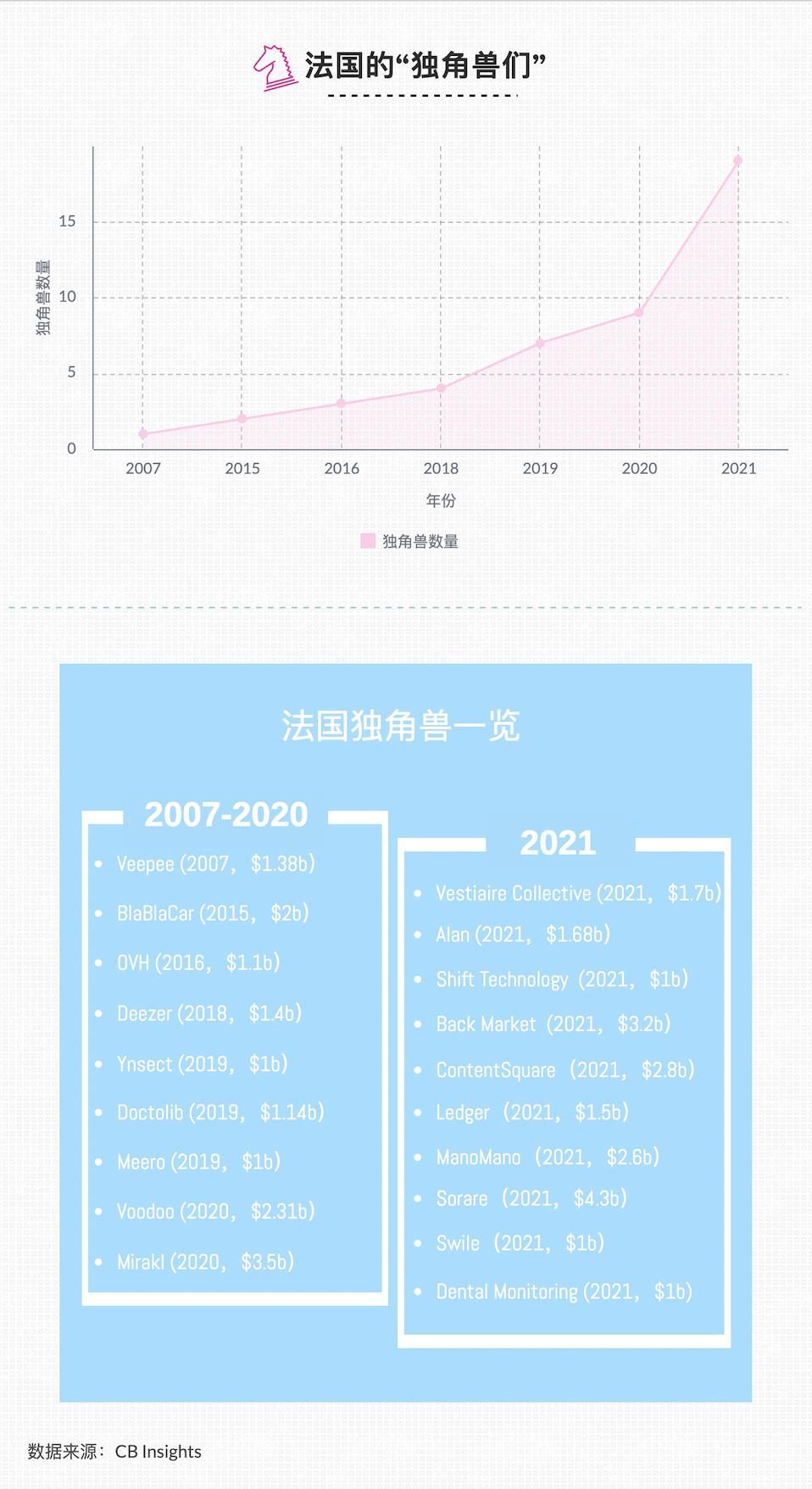
In fact, before 2016, the French venture capital environment was not friendly for entrepreneurs overseas or even in France. Even at that time, there was a saying of "fleeing Paris to Silicon Valley".
Indeed, there were several major problems in France at that time. First, the tax system and labor laws in France are complex and unclear, which leads to the fact that enterprises often face lawsuits, strikes and other problems, and the employment costs are high. Secondly, the regulatory framework of France is incomplete. It is understood that the country was pursuing the principle of "it would be illegal if there were no relevant legal provisions", which not only hindered innovation, but also was not conducive to attracting overseas capital. Third, at that time, the financing environment in France was still difficult for enterprises to finance in the later stage.
However, with the continuous improvement of the tax, labor and entrepreneurial environment by the government and the implementation of the elite talent strategy, the entrepreneurial ecology of France has also been able to flourish. Among them, in terms of talent cultivation, France has institutions of higher learning such as HEC and INSEAD, which have cultivated many outstanding talents.
From the perspective of investment environment, the 2020 French Science and Technology Venture Capital Report shows that French start-ups raised 4.35 billion euros in 476 rounds of financing in 2020, up 9% year on year. Among them, the 15 largest financings raised a total of 1.9 billion euros (accounting for 43% of France's total financing in 2020).
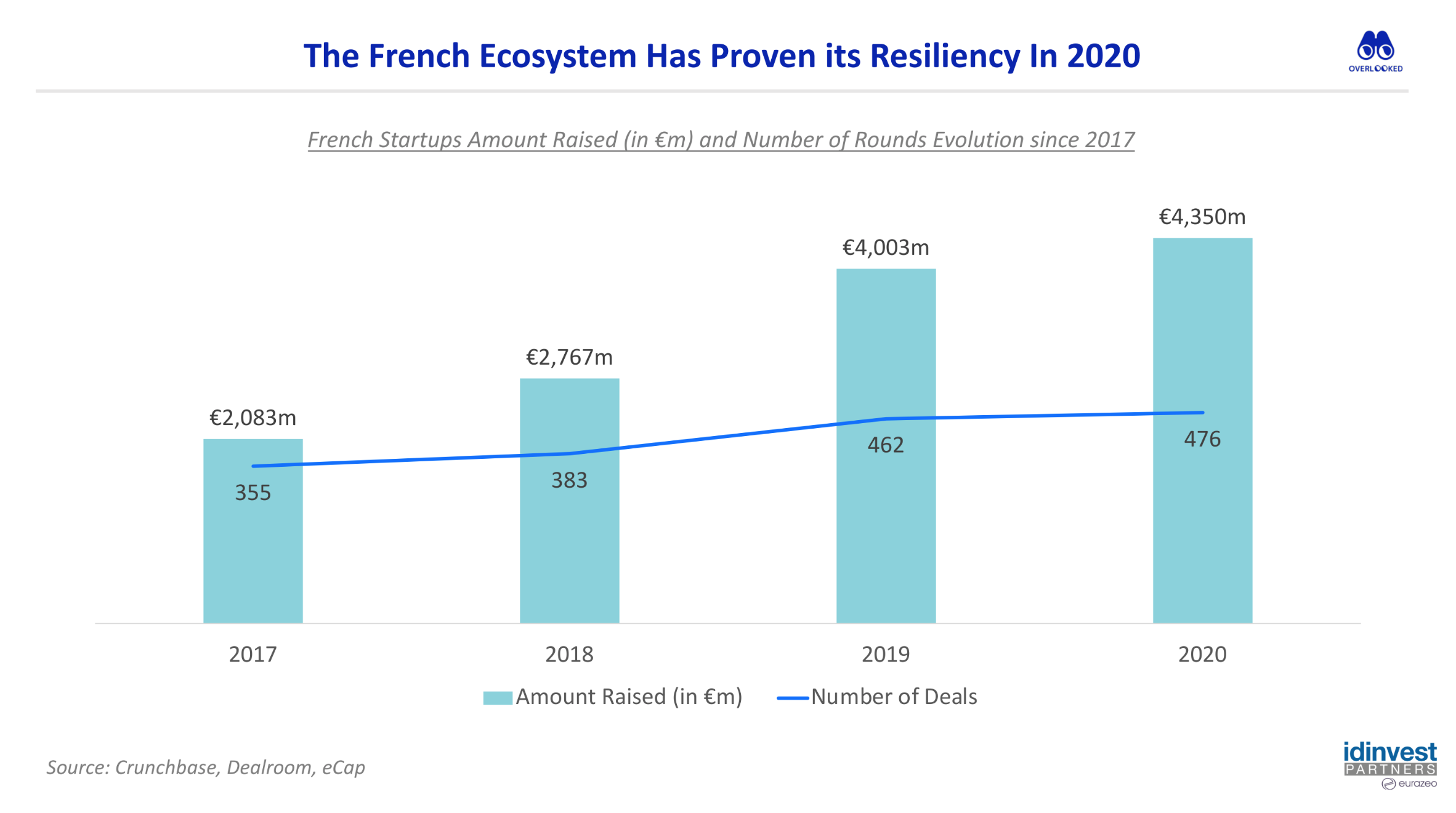
By 2021, according to the statistics of Avolta Partners, as of the second quarter of 2021, French start-ups had raised a total of 4.6 billion euros. In the second quarter, they had "attracted" 3.2 billion euros, almost twice as much as in the first quarter.
Among them, there are many French local investors, such as Idinvest (Eurazeo), Partech, Elaia, Alven, Breega, Go Capital and Saint James, and other active local VCs, as well as Xavier Niel, Thibaud Elzi è re and Fabrice Grinda, and other angel investors are also "activists" in the French investment and financing field. It is reported that in the investment round in 2020, French angel investors will participate in 44%.
In addition, as an important medium for the government to support the development of entrepreneurial ecology, BPI, the French national investment bank, supports the development of the French scientific and technological ecosystem through investment. It is reported that BPI has three teams to make equity investments in startups at different stages: F3A was founded in 2015, investing in seed rounds; Ambition Num é rique was founded in 2011, investing in round A and round B; Large Venture was established in 2013, during the investment growth period.
For foreign investors, the investment environment in France has become more and more "friendly" in recent years. According to the Guidelines for Countries (Regions) of Foreign Investment and Cooperation issued by the Ministry of Commerce of China, France's investment environment is open and transparent, and foreign investors can enjoy "national treatment" in the French market, except for certain special industries that need to be declared. According to statistics, 17% of financing transactions in 2020 include at least one foreign investor, 59% of financing amount comes from foreign investors, and 23 foreign funds have done at least two transactions in France. Among them, Accel, Balderton Capital, GFC, Index Ventures and other investors have invested in many enterprises in France.
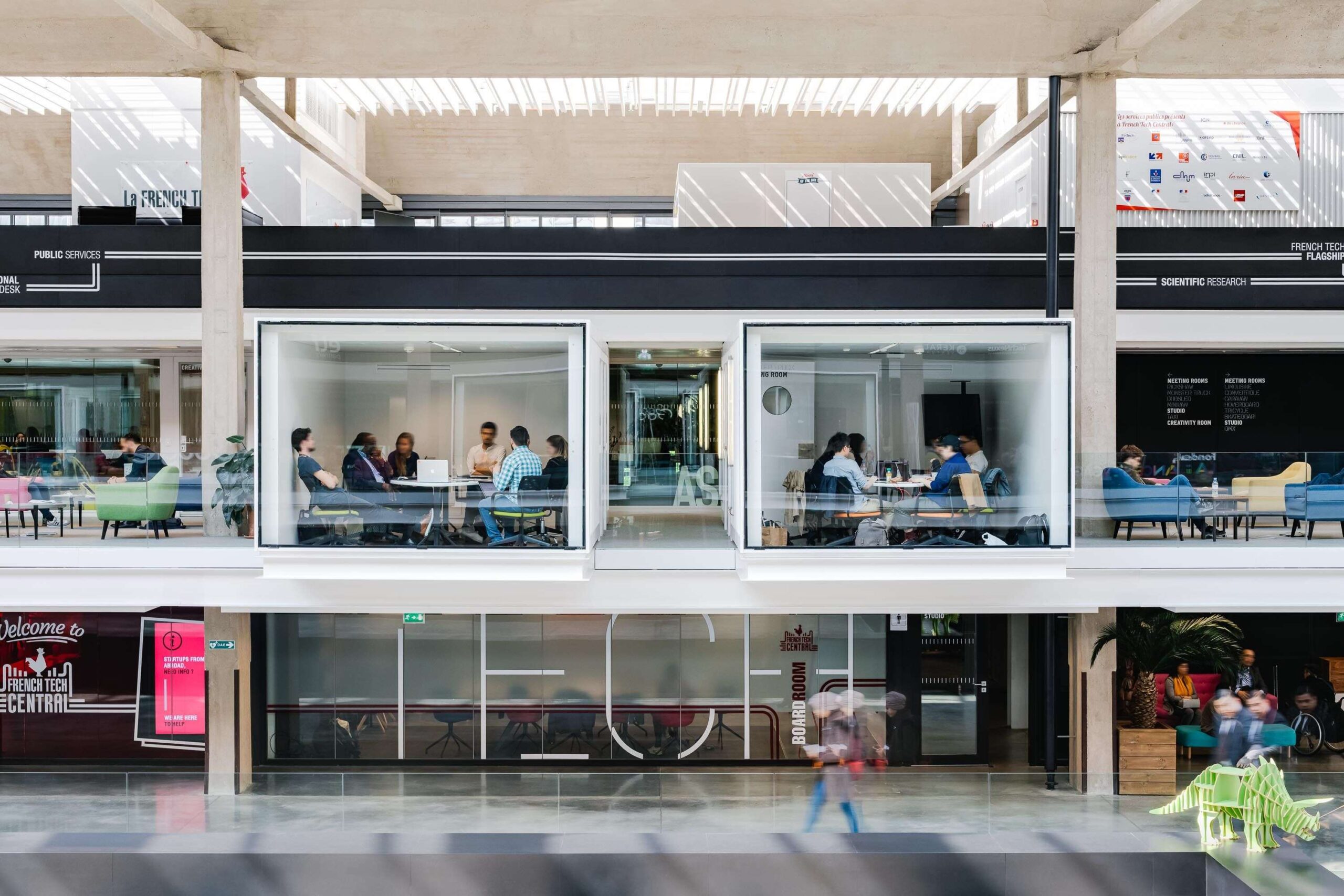
Not only the investment environment, but also the entrepreneurial environment in France is changing. According to the 2020 French Science and Technology Venture Capital Report, from the perspective of industry financing distribution information, finance, marketing, cloud services, retail and e-commerce have become a hot track in recent years. The financing amount of the above industries accounts for 50% of the total financing amount, and they all show explosive growth in 2019 and 2020. In addition, under the influence of the epidemic, some racetracks have developed rapidly, such as financial technology, cloud services, medical care, education and games.
In addition, France also pays attention to the development of artificial intelligence and renewable energy. Among them, in terms of artificial intelligence, in March 2018, President Makron announced the development strategy of French artificial intelligence, which will spend 1.5 billion euros before the end of Makron's first term of office in 2022, aiming to make full use of its own human resources and build France into one of the countries with the highest level of artificial intelligence research and development in the world through a number of policy initiatives. In terms of renewable energy, in order to promote the development of renewable energy, the French government will vigorously develop renewable energy such as solar energy and wind energy, and plans to reduce the proportion of nuclear power to 50% by 2028 (nuclear power now accounts for more than 70% of France's energy structure).
On October 12 this year, President Makron further announced the French 2030 plan. According to CCTV News, according to the plan, France will invest 30 billion euros (about 225 billion yuan) to re industrialize relevant industries in France, ensuring that France will become an innovative country again in 2030. This fund will be invested in many sectors such as nuclear industry, green industry, automobile industry and agriculture. Its purpose is to realize digitalization and drive innovation in various industrial sectors, and enhance environmental protection.
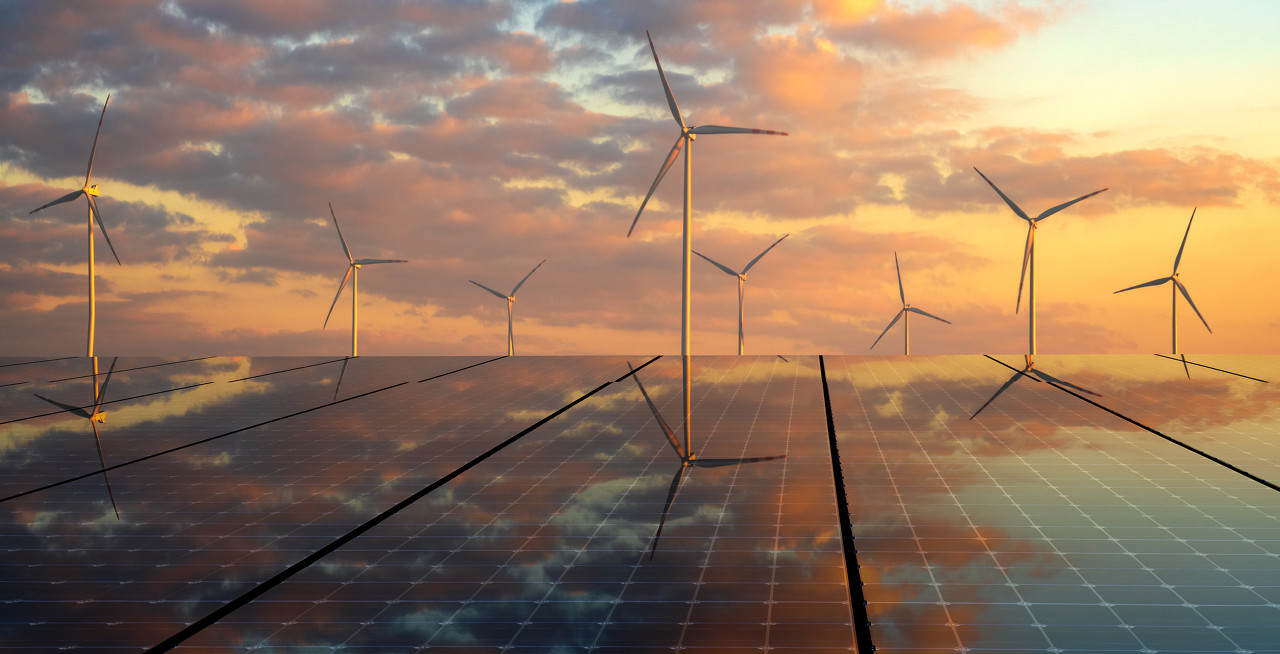
For entrepreneurs from China, France is one of the main destinations for China's foreign direct investment in Europe. According to the Guidelines for Foreign Investment Cooperation Countries (Regions), the cooperation between the two countries in the "the Belt and Road" initiative and third-party market cooperation provides new opportunities for enterprises of both sides. Among them, China's investment in France covers many fields, mainly in luxury goods, health care, manufacturing, agricultural and sideline products, hotels, machinery and equipment, information engineering, telecommunications operations and other fields. According to DCCChina, in 2019, about 150 Chinese companies set up subsidiaries in France.
In addition, due to France's high Internet penetration rate (nearly 90%) and perfect network infrastructure, more and more Chinese enterprises and investors have turned their eyes to France, a hot place for entrepreneurship, with the rise of "emerging hot tracks" such as financial technology, cloud services and e-commerce. In addition to Tencent, Ali, ByteDance and other giants, there are also micro trauma in the medical field, Quka Funplus in the game track, Kwai in the entertainment track, Handy Technology in the tool field, and SHEIN, Dunhuang, Lanting Jishi in the cross-border e-commerce track.
Today, France (Paris) is not only the world's leading science and technology innovation center, but also the largest science and technology innovation center in the EU. As President Makron said, France is becoming a "free country of entrepreneurship".
In fact, in the past few years, 36Kr Global, Asia's leading new business media and enterprise service platform, has helped Asia's innovation capabilities cross national borders and be applied and tested in more markets by mobilizing ecological resources and service experience across Asia. In 2021, in order to provide the value of connectivity in a wider geographical scope,36Kr Global established the European Station KrEurope and Australia New Zealand Station Kr ANZ, aiming to help more Asian companies expand markets in Europe, Australia and New Zealand together with local partners, and help overseas companies enter Asia to promote business cooperation in Asia and overseas regions in a wider geographical scope.If your company is interested in cooperation, please contact zhaoxiaochun@36kr.com Detailed consultation.
Wen | Deng Yunxi
Editor | Zhao Xiaochun
LET'S CHUHAI CLUB Sailing to Southeast Asia Salon - Beijing Station
On December 16, the fourth stop of "LET'S CHUHAI CLUB Sailing to Southeast Asia Series Salon" jointly sponsored by Singapore Economic Development Council and 36 Krypton Sailing to the Sea will arrive in Beijing. This activity will focus on the hot topics such as enterprise service companies' market strategies in Southeast Asia, how multinational enterprises break through cultural barriers, and discuss business opportunities and challenges for enterprises to go to Southeast Asia, so as to create a next-generation global enterprise.
Welcome to scan the code and fill in the form to register for the activity.
